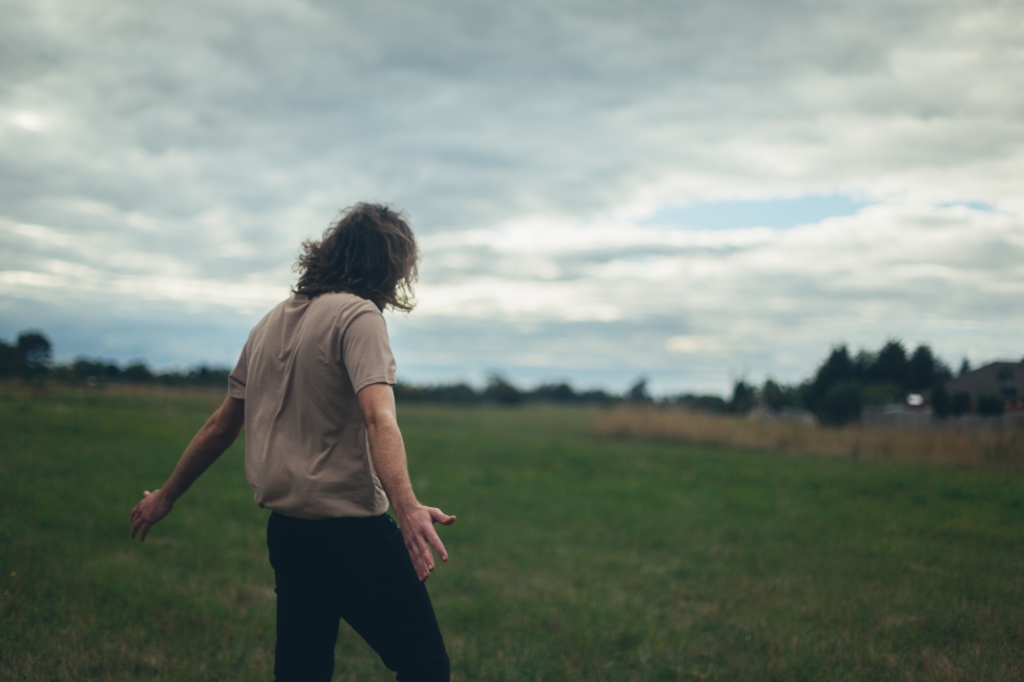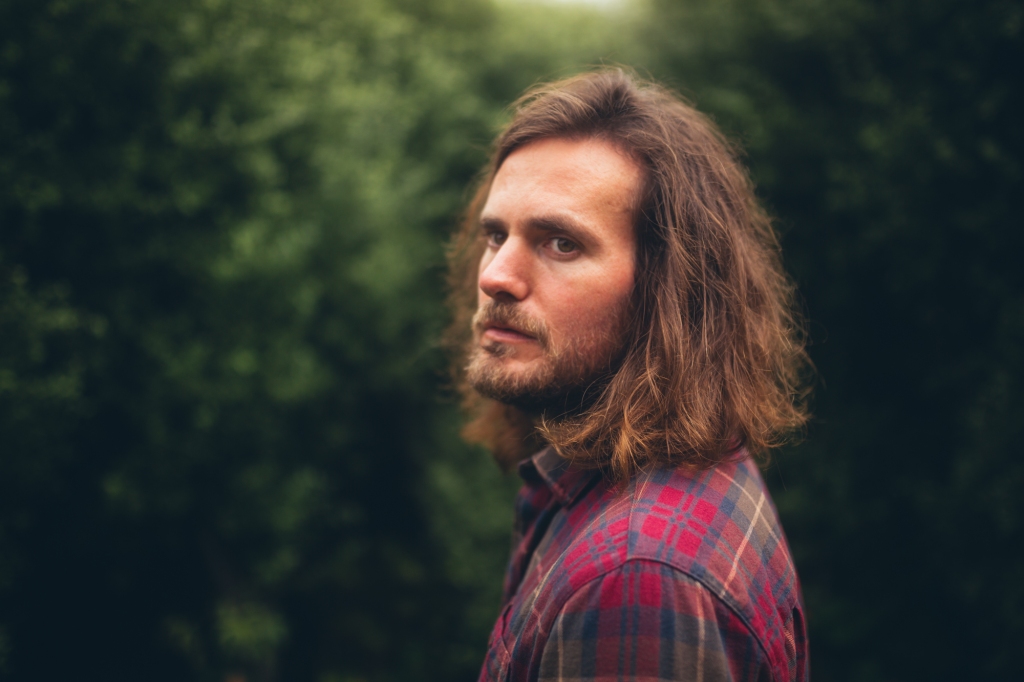Questions: Selin Ruby Kaya
Answers: Greg Steps

1. Tell us a bit about Greg Steps! When did you first get a feel for the Australian music scene?
I first started playing in bands in High School in Brisbane, pretty straight-forward rock stuff. I fancied myself as a bit of a singer, trying to sound like Robert Plant but not really getting it to work. I ended up in a band called ‘Ground Black Pepper’, named after the condiment which we all very much enjoyed at the time. We were very influenced by 60’s/70’s stuff. One day our guitar player bought a wah pedal, and we suddenly morphed into this quasi-funk band (none of us really knew anything about funk music). I wrote most of the songs, which were admittedly pretty juvenile. We played lots of gigs around Brissie to our friends, but we were super young and naive, and didn’t really know what we were doing. One time my brother said to me “Your band is like Seinfeld…your songs are about nothing”. He was right. After a year or two it all fell apart – everyone kinda went in their own direction.
I was going through some mental health stuff at the time, anxiety and depression, and my whole outlook became a bit more… introspective. I started to absorb more folk influences, singer-songwriter stuff, Dylan and Neil etc. I started writing more ‘mature’ sounding songs (whatever that means), though I didn’t have the confidence to play them to people due to the aforementioned mental health issues. I had lost the confidence to sing in public. I dunno. I kept playing in bands, but hid myself away a little, doing things like playing keyboards which I didn’t really know how to play. I was more of a background guy during this time. The songs for these bands were often worked out in the rehearsal room, written through jamming and then piecing it all together. At the same time I was working privately on my own folk/strummy songs, only very occasionally summing up the courage to show them to my band mates. Maybe once or twice. They were generally supportive, but there wasn’t really much room for my songs in that context. Bands who collaborate on material can sometimes get a little spooked when one member brings in something finished and says, “Hey look what I made without the rest of you”. Also, I wasn’t singing anymore, and other vocalists weren’t that comfortable singing the lyrics I wrote. I was writing pretty personal stuff at the time, some of it a little downbeat, so their reluctance makes sense in hindsight. At the time I felt a little bit slighted though.
Anyway. After a while I got more on top of my mental health stuff, and began putting myself out there more. I got to a place in my mid 20’s where I felt confident enough in myself to move to Melbourne on my own, with the intent of pursuing the whole solo/ singer-songwriter thing. Which I’ve been doing to this day. And Voila! Here I am. Nice to meet you.

2. Who are your main influences, and what have they taught you about music?
Neil Young is a big influence, to the point where I have to consciously try and not ape his style. I think I’ve definitely been guilty of that in the past. I feel that I’m starting to find my own voice now, which is something I’m incredibly proud of. I like the wonkiness of his music, it suits my own internal sense of rhythm. I also like his guitar playing, electric and acoustic. It’s very rhythmic, free-flowing but jagged. The Go-Betweens are another big influence, serving as a nice reminder that you can come from Brisbane and still be smart and not like Rugby League and that’s okay. I like the jangliness of their songs, the whole Robert/Grant writing dynamic, along with their ‘amateur’ approach to musicianship. They arose from the whole punk thing, more interested in the quality of the song than musicianship. Having said that, Lindy Morrison is an amazing drummer, quite possibly my favourite. Maybe her and Charlie Watts, from the Stones.
I’ve been listening to a lot of Simon and Garfunkel/Paul Simon albums over the past year or two. I like how the songs are often rooted around Paul’s acoustic guitar, but have fun little embellishments and overdubs that colour the sound. Paul Simon’s songs are quite considered and intellectual, and aren’t about replicating a sense of emotional authenticity in the studio like Dylan and Neil. I find that very refreshing. They’re highly sophisticated productions, albeit on a modest scale. That approach to recording was a big influence on my latest record, ‘Out in the Boonies…’. I wanted songs rooted in folk music, but that were also playful and adventurous in their arrangements. I didn’t care so much about the whole Americana faux-emotional authenticity thing, which was present on my last record, ‘The Overland’. I feel that that kind of hyper-sensitivity is overrated.

3. What are some important messages which surface in your single ‘Town Without a Face’?
I think the most important message is that a place doesn’t have to be stereo-typically ‘cool’ to be truly cool. Fitzroy is ‘cool’. Brunswick and Northcote are ‘cool’. Yawn… I want to explore places in my songs that aren’t Melbourne’s inner-north. And what better place to start than daggy old Brisbane, my old hometown. Living in Melbourne, I often encounter Brissie expats who slag off where they came from. I totally get it, as Brisbane will never be as cultured or sophisticated as Melbourne. After all, it’s too hot to dress fashionably. I never had any nice clothes until I moved to Melbourne. I was a shirt and shorts man, plain and simple. And I still am at heart, even though I now have some nice checkered op-shop scarves in the draw at home.
So I guess the message of the song is that a place that seems dull on the surface can in fact be quite interesting. There’s beauty to be found even in the most banal of outer suburbs – you just have to look a little harder. Which is a good thing, having to work to find meaning rather than just having it at your fingertips. In that way, Fitzroy and Brunswick are convenience-cool, like going down to 7-11 and saying “I’ll have some cool please”. The things that are significant and meaningful to me about Brisbane aren’t anything you could ever put on a postcard. You won’t find them on Tripadvisor. They’re not some landmark or old building, a quaint bridge, or a cake shop or vintage store or whatever. They’re memories, and they matter to me because they made me who I am today. It’s the crappy old supermarket that was my first job, or the little old park down the road from my house where I used to kick a ball. That’s what I consider to be cool.

4. We’ve seen that you’ve also got a debut album, ‘Out in the Boonies…’ set for release. It’s interesting to see the parallels of country-city life, what made you want to capture this feeling in an album?
The title for ‘Out in the Boonies’ came from a conversation with a friend of mine. I had just moved to Bundoora to be with my partner, and he asked me jokingly, “so what’s it like living out in the boonies?”. I had a good chuckle at that. If you had asked me five years ago where Bundoora was, I wouldn’t have been able to tell you. When you’re young and living in the inner-north, Preston is the outer edge of your geographical consciousness. Or maybe Reservoir. But Bundoora?! Where on earth is that? It sounds far away. Bundoora is not a rural area by any measure, not anymore at least. Back in the 1950’s it was, but Melbourne’s gradual urban-sprawl has turned it into just another generic suburb for middle class aspirationals. So like ‘Town Without a Face’, it’s about finding beauty and meaning in a place that isn’t typically considered to be beautiful or meaningful.
I also feel that the term ‘boonies’ is something that can be twisted so that it applies to middle-age, or being in your thirties. Living ‘out in the boonies’ is about growing up and slowing down, an acknowledgement that your 20’s are over. A more cynical take is that it’s ‘turning into your parents’. That may be the case, I dunno. If it is, I’m choosing to embrace it. I have a toddler now, and I’m too tired to stay up past 9:00pm. I don’t find meaning in gentrified neighbourhoods anymore, with cool coffee shops with peeling paint. I find it in spending time with my daughter and my partner, which I can do at home. There seems to be an overlap between outer-suburban living and being in your thirties or forties. It’s partly down to not being able to afford living that close to the city, but there’s more to it than that. It’s about having a different set of priorities. Family is the priority now, instead of drinking in bars.

5. What is the most important thing you’ve learnt, creatively, from crafting your very first album? Where can people find you, Greg?
Ha! I’ve learnt so many things, I’m not sure which is the most important. I recorded the album at home, so you could say that I’ve learned how to record and produce myself, which is incredibly empowering. I’ve also learnt that I’m incredibly lucky to have the partner I have. I try my best to be a good Dad and do my fair share of the domestic responsibilities, but it’s challenging to be creative while sharing the mental load of parenting. There’s only so much room in your brain for all the things. It’s fair to say that there were times while I was making the record where my partner was picking up the slack. I’m not talking about practical tasks like changing nappies, dealing with nighttime wake-ups or taking your kid to the park. I’m good at all that. I’m talking about the extra stuff, like planning a child’s first birthday party, or thinking about the meals for the next week or two. That’s what I struggled with while making the record. My head was in the songs, while my partner was effectively managing the family. I was just doing the grunt work. I’ve spent the past six months trying to make it up to my partner and daughter, doing my bit and beyond.
So creativity is, in some respects, a luxury. It’s cognitive energy that could be spent planning for one’s family. I’m creative at heart, and making music helps keep me sane. But that’s it. It does little to raise a child, practically speaking.
You can find Greg Steps here: